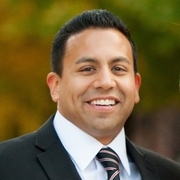ICD-10 October Recap: Claims Billed, But Will Denials Spike?

- Over 13 million institutional and physician ICD-10 claims valued at over $25 billion were “successfully” processed last month across 2,400 hospitals and 630,000 healthcare providers, according to RevCycleIntelligence.com’s report on recently released data from RelayHealth Financial.

“Claims are flowing successfully, and now the industry must be ready to tackle the next set of challenges: timely and correct reimbursement,” stated Joshua Berman, Director of ICD-10 at RelayHealth Financial, within a company press release.
Berman recently chatted with RevCycleIntelligence.com in an exclusive interview to provide deeper insight on the greater implication behind such massive numbers and the importance they hold within the collective healthcare space, for November and beyond.
RevCycleIntelligence.com: What is the best strategy to guarantee the execution of both timely and correct reimbursement?
Joshua Berman: We've been telling people for a long time to be able to track those key performance indicators (KPIs) that will affect ICD-10. The good news is none of those are new. You should be checking your denials and your Discharged Not Final Billed [DNFB] – today.
If you look at the benchmark for days to payment – how long it is taking to get paid after you release a claim for our business – it's 40-plus days.
For those ICD-10 claims that went out on October 1st – which was a really small amount – we don't expect to see answers on those until November 10th or so.
A lot of people – especially those not engaged with the hospital and provider business – kind of thought all these claims were going to come flooding out on October 1 and they were all going to pay October 2. That is not even remotely close to the real revenue cycle process.
RevCycleIntelligence.com: What are the greater implications of RelayHealth’s sizable claim ICD-10 data?
JB: Providers were able to bill claims. If you talk to almost the entire industry, the huge concern was if the hospital staff was trained to produce ICD-10s. The answer was a resounding yes.
Would payers be able to accept these claims into their system? The answer was a resounding yes. That's huge news.
A lot of people were saying, "Oh, we're not done yet." But I don't want to discount the fact that we’ve gone over hurdles a lot of people were really nervous about – myself included. You saw that in the large numbers that were produced.
RevCycleIntelligence.com: Where does the healthcare industry stand regarding what’s in store for November?
JB: Now we're into the payment processing piece. We won’t be able to speak confidently about whether or not there is success until Thanksgiving.
We have seen a small amount of remits come in and they look good. We have enough critical mass to speak to providers booting claims out. And we have enough critical mass to say payers are accepting. But we don't have enough critical mass in payments yet.
RevCycleIntelligence.com: Where should healthcare providers and hospital executives be focusing their energies as we come into November and beyond?
JB: That’s a good question. If you had asked me that before ICD-10, I would have told you make sure you can get those claims out your door at the same speed and efficiency that you did for ICD-9.
Now that the conversation is different, what you're now watching are three things.
Number one, are you getting the remits back and are you getting them at the same speed and efficiency as you used to from payers?
Number two, within those, is there a whole bunch of denial?
And number three, within those, are you getting paid the dollar amount that you suspected you were supposed to get paid?
Do I think all of those are going to go okay? Absolutely. But it's certainly possible you've got those claims out your door efficiently and effectively, but they weren't coded as well as you did ICD-9s, and therefore you see more denials.
I fully expect denial rate to go up. The question is, will they blow up when they go up? Will it be so much that you're not prepared to handle it?
RevCycleIntelligence.com: Was there anything that particularly surprised you about your data on 13 million successfully processed claims?
JB: I suspected more providers would have problems getting claims out their door, which was not the case. I suspected more payers would have problems taking those claims in, but that was also not the case. It has been business as usual.
RevCycleIntelligence.com: Is ICD-10 unfolding as was expected? What’s next around the ICD-10 bend? Did you expect the world to end?
JB: It's not unfolding as I expected, because it's been so squeaky-clean. I didn't expect the world to end, but I expected a little more action. I don't remember a time when the industry worked together as well as we did.
We are finding solutions ahead of time instead of sitting in our disparate little boxes not talking. A lot of the reasons why we haven't had any problems is as simple as preparation across the spectrum.
RevCycleIntelligence.com: With everything indeed being so “squeaky-clean” thus far, do you think it is premature to be celebrating ICD-10 success?
JB: I don't want people to get lax. I want people to celebrate the successes, for sure, but we're not done yet. If we maintain the same focus we had on October 1 through the next month and a half or so, we'll be able to get through the next hurdle.
What I'm hoping is that it's not forgotten, that we discuss what we did right, what we did wrong, and if we are ready the next time there is a huge industry event.
